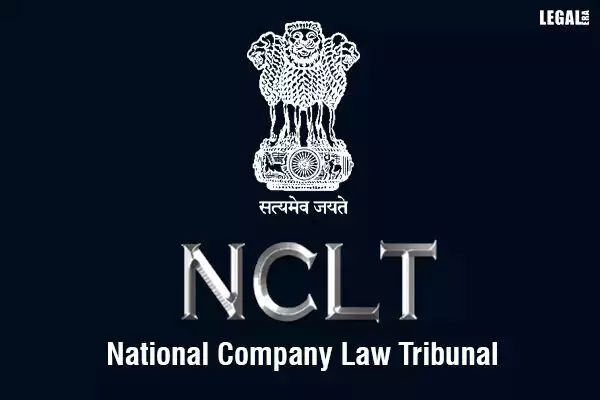- Home
- News
- Articles+
- Aerospace
- Artificial Intelligence
- Agriculture
- Alternate Dispute Resolution
- Arbitration & Mediation
- Banking and Finance
- Bankruptcy
- Book Review
- Bribery & Corruption
- Commercial Litigation
- Competition Law
- Conference Reports
- Consumer Products
- Contract
- Corporate Governance
- Corporate Law
- Covid-19
- Cryptocurrency
- Cybersecurity
- Data Protection
- Defence
- Digital Economy
- E-commerce
- Employment Law
- Energy and Natural Resources
- Entertainment and Sports Law
- Environmental Law
- Environmental, Social, and Governance
- Foreign Direct Investment
- Food and Beverage
- Gaming
- Health Care
- IBC Diaries
- In Focus
- Inclusion & Diversity
- Insurance Law
- Intellectual Property
- International Law
- IP & Tech Era
- Know the Law
- Labour Laws
- Law & Policy and Regulation
- Litigation
- Litigation Funding
- Manufacturing
- Mergers & Acquisitions
- NFTs
- Privacy
- Private Equity
- Project Finance
- Real Estate
- Risk and Compliance
- Student Corner
- Take On Board
- Tax
- Technology Media and Telecom
- Tributes
- Viewpoint
- Zoom In
- Law Firms
- In-House
- Rankings
- E-Magazine
- Legal Era TV
- Events
- Middle East
- Africa
- News
- Articles
- Aerospace
- Artificial Intelligence
- Agriculture
- Alternate Dispute Resolution
- Arbitration & Mediation
- Banking and Finance
- Bankruptcy
- Book Review
- Bribery & Corruption
- Commercial Litigation
- Competition Law
- Conference Reports
- Consumer Products
- Contract
- Corporate Governance
- Corporate Law
- Covid-19
- Cryptocurrency
- Cybersecurity
- Data Protection
- Defence
- Digital Economy
- E-commerce
- Employment Law
- Energy and Natural Resources
- Entertainment and Sports Law
- Environmental Law
- Environmental, Social, and Governance
- Foreign Direct Investment
- Food and Beverage
- Gaming
- Health Care
- IBC Diaries
- In Focus
- Inclusion & Diversity
- Insurance Law
- Intellectual Property
- International Law
- IP & Tech Era
- Know the Law
- Labour Laws
- Law & Policy and Regulation
- Litigation
- Litigation Funding
- Manufacturing
- Mergers & Acquisitions
- NFTs
- Privacy
- Private Equity
- Project Finance
- Real Estate
- Risk and Compliance
- Student Corner
- Take On Board
- Tax
- Technology Media and Telecom
- Tributes
- Viewpoint
- Zoom In
- Law Firms
- In-House
- Rankings
- E-Magazine
- Legal Era TV
- Events
- Middle East
- Africa
Non-acceptance Of Goods By Corporate Debtor Not Equated To Operational Debt Under IBC: NCLT

Non-acceptance Of Goods By Corporate Debtor Not Equated To Operational Debt Under IBC: NCLT
Rules that the CIRP application under Section 9 did not stand
The Mumbai branch of the National Company Law Tribunal (NCLT) has held that non-acceptance of goods by the corporate debtor cannot be equated to a default of operational debt under Section 5(21) of the Insolvency and Bankruptcy Code (IBC), 2016.
Adishank Chemicals Pvt. Ltd (operational creditor) was engaged with Baerlocher India Additives Pvt. Ltd (corporate debtor) for the supply of material.
The corporate debtor placed an order via a 23 June 2022 purchase order, for the supply of goods with the payment term of 30 days credit.
The operational creditor repeatedly requested to send a call-up at the earliest to process the material, as a minimum period of 10 days advance call-up was agreed to between the parties. However, it did not receive any response.
On 22 August 2022, the corporate debtor assured the operational creditor that within three to four days, it would be informed of the supplies. The operational creditor recorded in writing and informed that it was incurring losses and holding costs as the corporate debtor was not picking up the material.
The operational creditor also informed about suffering losses as the corporate debtor had until then neither made any payment nor picked up the material. It claimed a total outstanding amount of Rs.1.35 crores payable as of 31 March 2023. The material was manufactured and ready for delivery.
Thereafter, the operational creditor filed a Corporate Insolvency Resolution Process (CIRP) application under Section 9 of the IBC against the corporate debtor.
The bench comprising Justice Kuldip Kumar Kareer (Judicial Member) and Anil Raj Chellan (Technical Member) dismissed the CIRP application and held that the non-acceptance of the goods by the corporate debtor could not be equated with the default of an operational debt under Section 5(21).
The tribunal explained that Section 5 (21) defined the operational debt as, “A claim of the provision of goods or services including employment or a debt of the three (payment) of dues arising under any law in force and payable to the Central government, State government, or a local authority.
The bench noted that since the goods were not delivered for whatever reasons, even if attributable to the corporate debtor, no case of default was made. The petitioner’s claim could not be covered under the IBC’s definition of operational debt.
The NCLT highlighted that the petitioner's claim arose from breach of contract by not honoring its commitment in purchasing the goods from the petitioner as per the purchase order. The appropriate remedy for the petitioner was to sue the corporate debtor before the appropriate authority.



